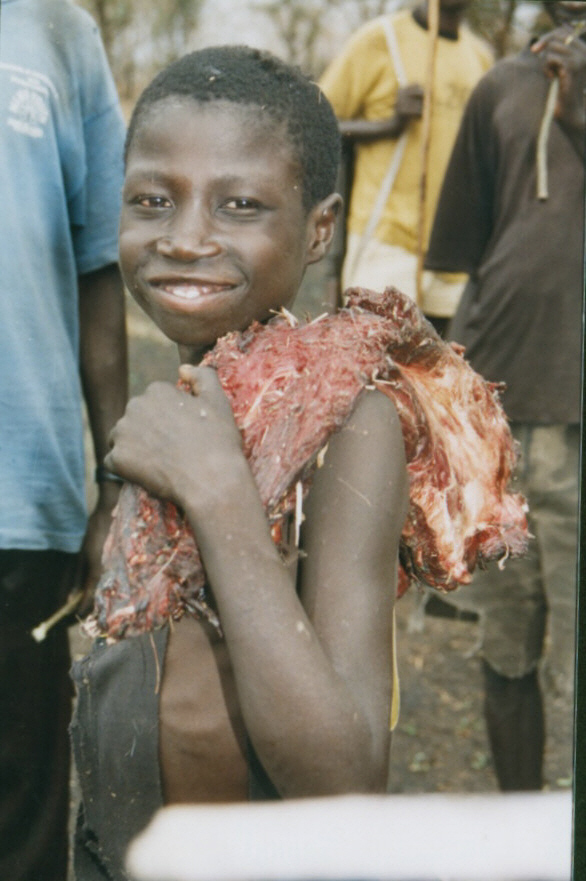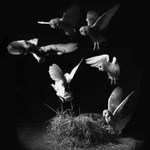New report finds domesticated animals are most frequent source of recurring human illness
A new report led by the Royal Veterinary College (RVC) and published by International Union for Conservation of Nature (IUCN), has found that contact with and trade of domesticated animals and their products are by far the most frequent source of recurring human illness.

The report analysed more than 5,000 sources spanning three decades to examine how human interactions with domestic and wild animals are linked to zoonoses and emerging infectious diseases of zoonotic origin.
The findings suggest that all human-animal interfaces pose a disease risk however, an estimated 99% of all human cases of recurring zoonoses come from domesticated animals and their products and within human-dominated environments, either through direct transmission or via food and water systems or insects.
When considering the link to wildlife trade, the report identified published evidence for only 47 such confirmed events over 28 years. This amounts to less than two documented cases per year, compared to an estimated total of one billion annual cases of direct or indirect zoonosis globally. Despite this relative scarcity of documented evidence, wildlife trade still presents a risk of novel pathogen spill-over, meaning that even single events can have major consequences.
There is widespread misconception that the terms “zoonosis” and “zoonotic origin” are equivalent. A zoonosis is a disease transmitted from other animals to humans, where the same causal pathogen is readily identifiable in both, and an animal reservoir exists. Rabies is an example of zoonosis. Diseases of zoonotic origin are those where pathogens found in humans and other animals are evolutionarily related, but where transmission may only occur between humans and the link with other animals may still be unknown or extremely rare. COVID-19 is an example of a disease of presumed zoonotic origin.

Professor Richard Kock, co-author of the study and Professor of Wildlife Health and Emerging Diseases at the Royal Veterinary College and part of the IUCN SSC Wildlife Health Specialist Group, said:
“In the wake of the COVID-19 pandemic, a lot of attention has been paid to the spill-over of pathogens from animals to humans from the wildlife trade, which does need to be monitored and regulated much more closely and in a targeted manner. However, we did not find evidence that would justify far-reaching bans on the sustainable use of wildlife from a disease risk perspective. In fact, such bans could actually be counterproductive, since they may drive the trade to unknown and likely more dangerous illegal settings.”
To address and minimise risks to human health linked to both domestic and wild animals, the report highlights several recommendations, including (but not limited to):
- The need for a holistic approach to detecting, monitoring, preventing, and controlling infectious diseases in human and animal populations that considers the numerous interactions between human, domestic animal, wildlife, and ecosystem health – an approach known as One Health.
- Targeted, evidence-based measures (in relation to disease risk in the context of wildlife trade specifically) such as improved surveillance of infection and zoonotic disease events, better sanitation, and regular animal health checks in wildlife markets at least to the same standards used for domestic animal trade; but advises against blanket, indiscriminate trade bans.
- Rethinking current production systems, exploitation practices of natural resources and animals (domestic, farmed, and wild), and systemic inequities in the access to healthcare to decrease the risk of future pandemics.
- Improved surveillance of zoonotic cases attributed to wildlife and the wildlife trade, both legal and illegal, to at least the same standards applied to the domestic animal trade.
- Reducing dependence of human nutrition on intensive animal-based food production systems.
Dr Hernan Caceres-Escobar, co-author of the study, scientist at the RVC, Sapienza University of Rome and the IUCN SSC Wildlife Health Specialist Group, said:
“While many diseases may have originated from wildlife historically, the available evidence clearly points to domestic animal interactions as a much more significant source of zoonoses in humans. If we continue to increase our production of animal-based food, we will not only drive more biodiversity loss, but also further increase the risk of future pandemics. We need to rethink the way we interact with the natural world and conserve the ecosystems that serve as natural ecological barriers that maintain the equilibrium between humans, domestic animals, and wildlife.”
Read the full report here: https://doi.org/10.2305/IUCN.CH.2022.01.en
Notes to editors
Inputs and feedback from the report were provided by an Advisory Committee composed of experts from the Species Survival Commission, the IUCN Commission on Ecosystem Management (CEM), the IUCN Commission on Environmental, Economic and Social Policy (CEESP), TRAFFIC, University of Oxford, WWF International, Argentina’s National Scientific and Technical Research Council, International Institute for Environment and Development. The external revision process benefited also from the collaboration of experts from the University of Oxford and the Centre National de la Recherche Scientifique – UMR ASTRE, CIRAD, INRAE – Faculty of Veterinary Technology, Kasetsart University, Bangkok, Thailand.
For media enquires please contact:
- Jasmin De Vivo or rvc@plmr.co.uk
- Press Line: 0800 368 9520
About the RVC
- The Royal Veterinary College (RVC) is the UK's largest and longest established independent veterinary school and is a Member Institution of the University of London. It was the first in the world to hold full accreditation from AVMA, EAEVE, RCVS and AVBC.
- The RVC is ranked as the top veterinary school in the world in line with the QS World University Rankings by subject, 2021.
- The RVC offers undergraduate and postgraduate programmes in veterinary medicine, veterinary nursing and biological sciences.
- In 2017, the RVC received a Gold award from the Teaching Excellence Framework (TEF) – the highest rating a university can receive.
- A research led institution with 79% of its research rated as internationally excellent or world class in the Research Excellence Framework 2014.
- The RVC provides animal owners and the veterinary profession with access to expert veterinary care and advice through its teaching hospitals and first opinion practices in London and Hertfordshire.

